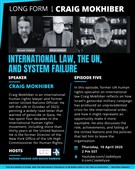Arab Uprisings Symposium: Critically Assessing the Changing Landscape of Power and Players
31 May - 1 June 2012
Auditorium A, West Hall
American University of Beirut (AUB)
Beirut, Lebanon
This Symposium is part of the AUB-wide Arab Uprisings Research Initiative, which was launched and is supported by the Office of the Provost and managed by the Issam Fares Institute for Public Policy and International Affairs. AUB has invited over twenty scholars from the Arab world and abroad to this Symposium to discuss critical themes that have emerged to date. The Symposium will highlight shifting power, new players, and other critical themes, to allow for a better understanding of this historic period.
The Arab uprisings, which started in December 2010, will undoubtedly be one of the most studied episodes of recent history. Accordingly, AUB`s Office of the Provost has launched a long-term, multi-sectoral research initiative on the Arab uprisings, aiming to harness the university`s many resources and assets to engage constructively with the historic changes taking place across the Arab world. The revolutionary and transformational processes underway are dynamic in one of the most complex geo-political regions in the world. The challenges of researching and understanding this pivotal moment in Arab history – its causes, main actors, changed power relations, and likely consequences – demand that judicious research in multiple fields be defined by perspectives from across the region continue for years ahead rather than merely comprise the occasional conference or publication.
The knowledge AUB generates from activities like this Symposium will also provide useful inputs into policy-making by governments, the private sector, NGOs and international parties who are all trying to make sense of the historic changes underway.
Day 1: Thursday May 31, 2012
09:00 – 09:30 Opening Keynote:
- Ahmad Dallal - Provost, AUB
09:30 - 11:00 Motivations Behind the Uprisings
An opening panel will give a broad overview of the concerns of Arab citizens to highlight what initiated the uprisings and the role of critical players such as workers, youth or women. The panel will also investigate the most recent polls from the region to gauge public opinion in the second year of the Arab uprisings.
- Rami G. Khouri - IFI / AUB
- Nada Al-Nashif - International Labour Organization
- Jean Said Makdisi - Independent Writer / Researcher
11:00 – 11:15 Coffee Break
11:15 - 13:15 Islamists, Coalitions, and Governance
Islamists groups have made successful gains at the recent elections in Egypt and Tunisia, but their ability to govern remains uncertain. The relationship between Islamists, secular groups and the military is tenuous, and their priorities diverge on many issues, ranging from social policy to the nature of the new state.
- Ahmad Moussalli - AUB
- Hesham Sallam - Georgetown University
- Rabab Al-Mahdi - American University in Cairo
13:15 – 14:15 Lunch
14:15 - 16:00 The Evolving GCC
Saudi Arabia, Qatar and the GCC countries have coordinated their response to the uprisings in the hopes of managing the repercussions in their own countries and protecting their strategic interests, especially in Bahrain and Yemen. This unprecedented regional political cooperation, coupled with billions of dollars geared towards elections and intervention beyond the GCC, will have significant impact on the outcomes of the revolts.
- Mehran Kamrava - Georgetown University, Qatar
- Toby Jones - Rutgers University
- Ala`a Shehabi - Writer / Economist
Day 2: Friday June 1, 2012
09:00 – 11:00 Regional Shifts and International Institutions
The political landscape of the region has shifted as new players and configurations have emerged challenging the decades-old regional status quo. This system-wide reconfiguration, caused by domestic uprisings, has made the region more unstable as powerful states, established alliances, and international institutions jostle to retain influence. This panel will look at the regional shift that has happened in the wake of the Arab uprisings and explore its consequences on the role of the United Nations, key states, established alliances, and non-state players.
- Karim Makdisi - IFI / AUB
- Waleed Hazbun - AUB
- Bahgat Korany - American University in Cairo
- Bashir Saade - AUB
11:00 – 11:15 Coffee Break
11:15 - 13:15 The Uprisings Now: Resillience in Authoritarianism or Revolution?
The Arab uprisings have entered a complex protracted period with many factors at play. The initial clarity and authenticity of a contagious citizens revolt against dictatorial regimes has been clouded with multiple factors from western intervention to regional competition amongst new players. The deep-rooted authoritarian regimes in some states have shown resilience and others will wither away. Critical issues like the question of Palestine and the new configuration of the region are yet to be determined.
- Ahmad Dallal - Provost, AUB
- Bassam Haddad - George Mason University
- Joshua Stacher - Kent State University
- Rami Zurayk - AUB
13:15 – 14:15 Lunch
14:15 - 16:00 Palestine and the Uprisings: Reconcilliation, Reform, and Representation
The issue of Palestine within the context of the revolutions is a complex one. Although it is still early to forecast the impact of the revolutions on the question of Palestine, regional changes have played a significant role in setting in motion the Fateh-Hamas reconciliation process. There have also been promises to reform and reconstruct the Palestine Liberation Organization (PLO), and to take meaningful steps towards enhancing representation and holding elections for the Palestinian Diaspora.
- Anis F. Kassim - Attorney and Legal Consultant
- Mohsen Saleh - Al-Zaytouna Centre, Beirut
- Rami G. Khouri - IFI / AUB
![[Image from flier AUB flier.]](https://kms.jadaliyya.com/Images/357x383xo/aubimagesymposium.png)
















